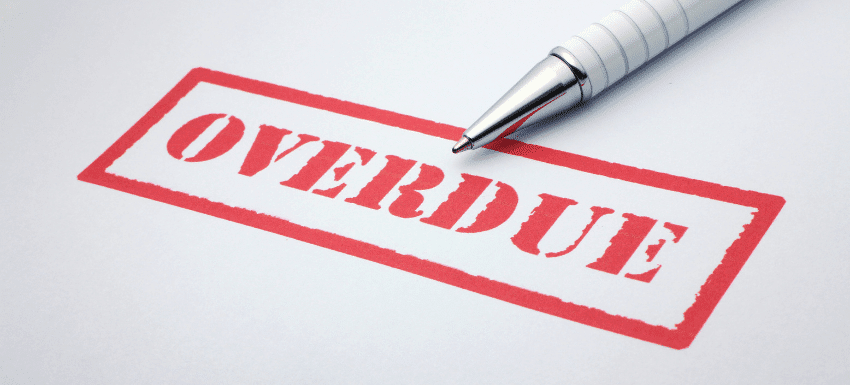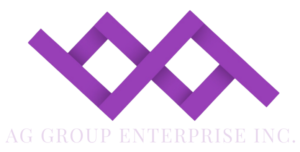
Tax Filling In Canada? Get it correctly the first time!
“There’s a first time for everything,” as the phrase goes, also applies to taxes! We are here to help, whether you’ve just started your first job and want to claim a refund or the goods and services tax/harmonized sales tax (GST/HST) credit, or you’re a newcomer to Canada who wants to keep receiving benefit payments.
Do you need to file a return?
Every year, the Canada Revenue Agency receives millions of tax and benefit returns. You can figure out how much tax you owe or if you’ll get a refund for taxes you’ve already paid by filing a return. Even if you didn’t earn any money in 2022, you should still submit a tax return since you may be eligible for benefits and credits like the GST and HST credits, the Canada child benefit, and other provincial or territorial programs. The CRA utilizes the information you give on your return to compute your benefit payments. Go to cra.gc.ca/benefits for more information on benefits and credits.
If you are new to Canada and establish ties to the nation, such as having a home and a spouse here, you are deemed a resident for tax purposes on the day you arrive. As a resident, you must pay taxes on all income, regardless of where it was obtained.
Completing a return

It is not as difficult as you may believe to complete a tax return. On the CRA’s website, look up Learning About Taxes, a self-paced learning guide that will help you comprehend Canada’s tax system and prepare a simple income tax return.
The deadline for most Canadians to file their income tax and benefit forms is April 30. Because that date falls on a Saturday in 2022, the CRA will consider your return timely and reimburse you if it is received by May 1 or later. Self-employed people and their wives or common-law partners have until June 15 to file their tax returns. If these people owe the CRA money, they must pay it as soon as possible.
CRA online services and apps

To file online, you’ll need NETFILE-certified software or a web application, as well as your social security number. On your return, you must enter the amounts from your numerous information slips and receipts. The CRA does not need you to send your slips and receipts. If the CRA wants to review them, it will notify you. Keep all receipts and slips for a minimum of six years.
If you have a My Account with the CRA and use certain tax preparation software, using the CRA’s Auto-fill my return service and filing your return online can save you time. Auto-fill my return makes filing your taxes easier by automatically filling in specific sections of your tax return.
If you’re eligible for a refund, you can obtain it in as little as eight business days if you use e-filing and direct deposit. Direct deposit is the most convenient way to receive your payments.
You can register for the CRA’s online services or download the Mobile App once you’ve received your assessment notice and filed your return. My Account, MyCRA mobile app, and MyBenefits CRA mobile app are all self-service options provided by the CRA. You can use your CRA user ID and password or enlist the help of a sign-in partner. You may track the status of your return, apply for benefits and credits, change your address, check your RRSP and TFSA contribution limits, sign up for online mail, get a proof of income statement, and much more with just a few clicks.
What Happens if You Don’t File your Taxes in Canada?

If you are obligated to file a tax return, you must do so by law. It is not a crime to have a tax debt, but it is a felony to fail to file taxes on time. Every year, every qualified Canadian must file income taxes.
Tax evasion is crime. Not filing a tax return = Tax evasion.
It is considered tax evasion if you are late in filing your returns. Tax evasion is defined as when an individual or a business violates Canadian tax regulations. You are breaking Canadian tax law if you do not file your income taxes on time, and the Canada Revenue Agency may suspect you of attempting to cheat taxes. Fingerprinting, court-ordered fines, prison time, and a criminal record are all possible consequences of tax evasion. Your reputation and future prospects may be jeopardized.
It is not illegal to have a tax debt and owe money to the Canada Revenue Agency (CRA). Not filing your tax returns, on the other hand, is.
Even if the CRA does not charge you with tax evasion, there are still ways for you to be harmed if you submit taxes late in Canada. The CRA may penalize you penalties and interest if you do not file your taxes on time. You will face significant penalties and interest if you wait and do not file your tax return on time. It’s even possible that you’ll be prosecuted.
You will face bigger fines if you file your taxes late (or not at all) on a regular basis. If you try to pay the CRA what you owe, your budget will be severely strained.
Even if you can’t afford to pay your tax bill, you should try to file on time in order to avoid penalties.
If you do not file, the CRA can estimate your income, spending, and other sums on your behalf. It can calculate how much tax you owe based on this evaluation. When the CRA conducts a Notational Assessment, they will examine all of the data and make crazy assumptions. As a result, they can calculate your tax liability, interest, and penalties, and collect the projected tax debt.
This is not in anyone’s best interests, therefore the simplest way to avoid it is to file your taxes on time.
What Happens if you File your Taxes Late?
The Canada Revenue Agency is without a doubt a powerful organization. The federal government of Canada has entrusted the CRA with the administration of tax laws in all provinces and territories. Self-assessment and enforced compliance are the cornerstones of Canadian taxation. It is mandatory for taxpayers to file their returns on time. Under some conditions, Canadian residents and even non-residents may be compelled to file income tax returns.
Failure to file taxes on time is a severe problem that must be addressed. For late filings, the CRA assesses hefty interest and penalties.
The penalty for filing taxes late rises with the length of time you wait to file, so if you owe a lot of money and have waited a long time to file, the penalty might be substantial.
Most taxpayers are obliged to file their taxes by April 30th of each year. If you are self-employed, you have until June 15th to file your taxes, but if you owe money, you must pay it by April 30th to avoid interest costs.
If you don’t submit your taxes by the deadline, you’ll be charged a penalty on May 1st, as well as compound daily interest. Even if you do not owe money, failing to file your taxes might result in severe penalties. Refunds will be held until you file, and any government benefits you expect (such as GST/HST or child benefits) will most likely be postponed until you file.
If you fail to file your tax return on time, you may be wondering how to file late tax returns. If your tax return is less than a year old, filing it is simple: just do it as you normally would. Fill out the form and send it in. If you owe tax or if the CRA imposes a penalty for late tax filing, you will be notified. The NETFILE service is available for many months after the deadline, so you can use it to file your taxes.
If your tax return is older, you may be eligible for the CRA’s Voluntary Disclosure Program (VDP). This tool allows taxpayers to repair errors in their taxes or file returns that were not filed on time. If you are accepted into the VDP, you will still have to pay your taxes (plus interest, if applicable), but you will be free of fines and potential prosecution. Regardless of these modifications, persons who the CRA determines willfully avoided their tax obligations will not be entitled to the same relief as those who made an innocent error. As a result, it is critical to get expert advice before applying for the VDP.
Late Tax Return Penalty

As previously stated, the CRA takes its deadlines very seriously. Taxpayers who fail to meet these deadlines and file their taxes on time will face penalties.
If you file your taxes late, you may be charged a late filing penalty by the CRA. Furthermore, if you do not pay a sum outstanding, the CRA will begin charging compound daily interest on the unpaid amount the day after your return is due. Since most people’s tax returns are due by April 30th, the deadline for most people is normally May 1st. The longer you wait to settle your tax bill, the more expensive it becomes due to this daily interest rate. However, the CRA does not charge interest exclusively on outstanding debt. It also penalizes taxpayers who file their taxes late.
Late tax returns are subject to a penalty of 5% of the total owing for the tax year, plus 1% for each full month the return is late. This, however, only applies if your taxes were recently filed on time. If you file late regularly, you may face a greater penalty. This is intended to deter late filing.
Remember that penalties and charges aren’t the only consequences of failing to file your taxes on time. As previously stated, the CRA may consider your conduct to be tax evasion if you fail to file your tax returns. This is a very serious charge with which you do not want to be confronted. If you believe you are being investigated for tax evasion, AG Group Enterprise Inc. can assist you. If you find yourself in this circumstance, please contact our team straight away.
Protect yourself!
As tax season approaches, protect yourself from phishing and other sorts of fraud that could lead to money or identity theft. CRA does not send email messages with links you did not request, nor does it ask for personal or financial information by email or text message, nor does it ask for prepaid credit card payments. On the CRA’s website, you can see instances of current scams, as well as information on how to recognize and avoid them, on the Fraud Prevention page. You can sign up for account alerts as soon as you register for CRA’s online services.
If your income is modest and your tax status is straightforward, you may qualify for help with your tax return through the Community Volunteer Income Tax Program. Free tax preparation is provided by local community organizations.
When you have so many alternatives, there’s no excuse to put off filing your income tax and benefit return this tax season.
Move Forward With AG Group!
Protect yourself from phishing and other sorts of fraud that could lead to identity theft or money theft as tax season approaches. The CRA does not send you emails with links that you did not request, nor does it ask for personal or financial information by email or text message, nor does it ask for prepaid credit card payments.
If you are a first-time taxpayer in Canada, it is natural for you to be confused. In order to smoothly complete your tax filing process, hire Ag Group Enterprise Inc. We have been providing tax help, investment advice, and business advice for over a decade and have the skills and knowledge required to help you through the ordeal of tax filing.
With AG group’s help, you can protect the future of your family and your finances.



